Write of Passage and Packaging Inception
Dissecting the differentiation of David Perell's flagship course.
SaaS Pricing is hard. PricingSaaS is your cheat code.
Monitor competitors, track real-time benchmarks, discover new strategies, and more.
Over the past year, there is one product that I've circled without purchasing more than any other.
The product?
An online writing course called Write of Passage, by David Perell.
You may or may not know of David Perell, but if you do, you probably feel like you know him pretty well. He’s a prolific creator with a distinctive voice who’s built a big audience online. He’s also one of those hyper-productive people in their early twenties that makes me seriously regret my penchant for partying at that age…😰
He tweets often to an audience of almost 100k followers, sends a weekly newsletter to over 25k subscribers, writes thought-provoking essays on the future of media and education, and hosts a podcast where he interviews some of the most interesting people in the world. His flagship product is his writing course, Write of Passage, where he’s taught hundreds of students how to create their own unique corner of the internet.
That may seem like a niche subject for a course, and that’s exactly the point. Perell has strong ideas about the future of education and the power of writing online, and the way he packages the course emphasizes a key principle to the way he thinks about learning.
It may seem strange referring to a course as a product, but that was absolutely intentional. Perell treats his course like a Chief Product Officer would treat their SaaS solution: iterating, testing and improving it over time.
Before jumping into the packaging of Write of Passage, a quick primer on David Perell, why I find his course so compelling, and how it functions similarly to a product I’m intimately familiar with: Hubspot.
David Perell and Hubspot
Hubspot built its brand on the idea of inbound marketing. The general idea was that traditional marketing was broken, and to deal with that, companies needed to change.
Instead of blasting prospects with interruptive ads, in the age of Google and social media, businesses need to make themselves the go-to source for answers to their customers' questions. To do this, they have to create content, optimize that content for search and social, and become a magnet for potential customers. Hubspot’s software suite gives small businesses the infrastructure to execute an inbound marketing strategy.
The crux of the pitch is that Hubspot is their own best case study. I was in sales there, and most of the people I spoke with were in our database because they downloaded content on Hubspot’s website. When prospects challenged the notion of inbound marketing, I’d reference that inbound marketing was the only reason we were on the phone together. That was a powerful rebuttal!
David Perell has a similar dynamic with Write of Passage. His inbound marketing parallel is the idea of a personal monopoly, which he defines as the unique intersection of an individual’s knowledge and skills that no one else can compete with. Write of Passage gives students the framework to build their own personal monopoly and the tools to execute their vision.
Just like Hubspot, he is his own best case study. If students question his methods, he can reference that the only reason they’re on the Zoom is because of his own personal monopoly, which attracted them to his work in the first place.
These concepts, inbound marketing and personal monopolies, are similar. In fact, they’re almost the same idea - one geared towards small businesses, the other towards individuals looking to thrive in the passion economy.
Both ideas require educating the customer. Through teaching, Hubspot and Perell recalibrate their customers’ understanding of the internet and energize them by making them feel like they've been let in on a secret before the rest of the world. This enthusiasm sparks evangelism that fuels a virtuous cycle that Phil Mohun captured perfectly in his recent essay, The Perell Production Function.
Source: Sunday Scaries
To be clear, not every company kills it with inbound marketing, and not every student will build a lasting personal monopoly, but the thing is - some will. Hubspot has transformed thousands of small businesses, and in less than a year, Perell’s course has changed the lives of many of his students. In both cases, the key to success is consistently doing the work.
Packaging Inception
When evaluating Write of Passage, there are two options:
Before diving into the key differentiator for the Premium course, it’s worth noting that just having two options is innovative. In traditional education, there’s no “premium version” of any given class.
Sure, ambitious students can go to office hours to spend more time with the professor, or create study groups on their own, but there’s no option to upgrade your typical college course. Even Seth Godin’s altMBA, which Perell has cited as an inspiration for Write of Passage, only has one option for the course.
Perell productizes one of his core principles with the Premium course. While there are a few differentiators between the two, there’s only one highlighted in bold. That differentiator is lifetime access to future cohorts.
The concept of taking a course multiple times may seem kind of weird…
In college, it wouldn't really make sense because most courses are organized by exams, and work is completed in service of getting a degree. Even at Lambda School, the poster-child for reimagining higher education, work is completed in service of getting a new job.
What makes Write of Passage different is there’s not really a finish line. The course is built on the foundation that the work is the reward, and the value of the course is in providing the framework and motivation for you to keep doing the work long after the final session.
Differentiating with lifetime access to future cohorts highlights 3 principles that are key to Perell’s philosophy on the future of learning online:
Courses should evolve
Community is critical
Course experiences should not be one and done
First, courses should evolve and get better over time. This is a pretty simple idea, and one that some teachers likely take seriously, but it definitely doesn’t feel like the norm in higher education. I think back to some of my college courses that felt like they came straight out of the 80’s.
Perell makes updates to his course like an engineer shipping code on a product. Just look at the iterations of his curriculum and packaging over the last year:
He takes student feedback seriously and makes updates after each cohort to ensure the course is always improving. If you purchase the Premium plan, you get access to Write of Passage ad infinitum and don’t have to worry about missing out on new ideas and frameworks as the course evolves.
But, you may be asking, would somebody actually take the course twice?
The answer is a resounding yes.
In a recent podcast with his Course Manager, Will Mannon, Perell notes that alumni often end up joining cohorts over and over again. Part of this is likely to see updates to the curriculum, but another reason is the community.
Despite Write of Passage being a purely virtual experience, the community element is critical. It takes a certain type of person to spend $3,000 learning how to write online. When these people meet each other, magic happens. In the same podcast, Perell references several examples of students that met in Write of Passage and are actively collaborating - some even starting businesses together.
This is one of the primary reasons people go to business school, but Write of Passage presents hyper-specific filtering criteria. As a Write of Passage student, you can broadly expect your fellow students to be entrepreneurial and interested in building an online business, making the community ripe for collaborations.
In that sense, having unlimited access to future cohorts adds a ton of value. If you don’t meet a collaborator in your first cohort, you can join the next one and see what happens. Even if you don’t meet a business partner, you’ll still build a network of tech-optimists that will continue providing motivation during times of procrastination.
Lastly, courses should not be one and done. A perfect example of why is Will Mannon. Will signed up for the first cohort of Write of Passage when he was working full-time and couldn’t make time for the live sessions.
Luckily, he purchased the Premium edition and decided to jump back in during the next cohort when it worked for his schedule. He was so affected by the course that he put together a list of recommendations for Perell to improve it, and Perell loved Will’s ideas so much that he hired him full time.
Allowing alumni to attend new cohorts gives enthusiastic students the ability to dive deeper into the Write of Passage world. This has already strengthened the product and community in the form of a formalized mentorship program. The natural progression seems to be alumni teaching the course themselves, scaling Write of Passage beyond Perell’s personal bandwidth.
By differentiating the Premium course with lifetime access to future cohorts, Perell explicitly calls out the value and embeds it in the minds of his students. This packaging allows students to think about revisiting the course multiple times before they even sign up, realizing early on that it can be much more than a 5-week experience.
If lifetime access was baked into a one-course offering, it would likely get lost among the long list of course attributes. Students would be less likely to notice it and probably wouldn’t end up attending subsequent cohorts as often as they do.
By using packaging to drive attention to one of his key principles about learning online, Perell plants the seed for students to take the exact action he wants them to.
It’s Packaging Inception.
The Future of Write of Passage
For Hubspot, inbound marketing was just the beginning - a stepping stone to a broader value proposition around delivering delightful customer experiences. Hubspot now offers a holistic growth suite that includes sales, marketing, and services software to enrich the customer lifecycle.
I think Perell’s product roadmap will evolve similarly. He’s spoken at length about his ultimate goal of helping people become better citizens of the internet. Building a personal monopoly is the first step in that direction.
From there, he can equip students with a complementary toolset to build meaningful relationships online, foster community, and launch digital products. His newest course, How to Crush it on Twitter, fits nicely into this broader landscape.
So, you may be wondering, if I think so highly of David Perell and Write of Passage, why haven’t I signed up for the course?
Honestly, I don’t have a great answer.
I think it’s a combination of price sensitivity, availability, and believing I’ve already learned most of the curriculum from engaging with so much of his free content. Sometimes, even when we know a product is great for us, we don’t pull the trigger.
However, if and when I do sign up, you can bet it’ll be for the Premium course.
Enjoying Good Better Best?
If you enjoyed this post, I’d love it if you hit the “like” button, that way I’ll know which posts are resonating the most!
If you have thoughts or feedback, I’d love to hear from you! You can find me on Twitter here.




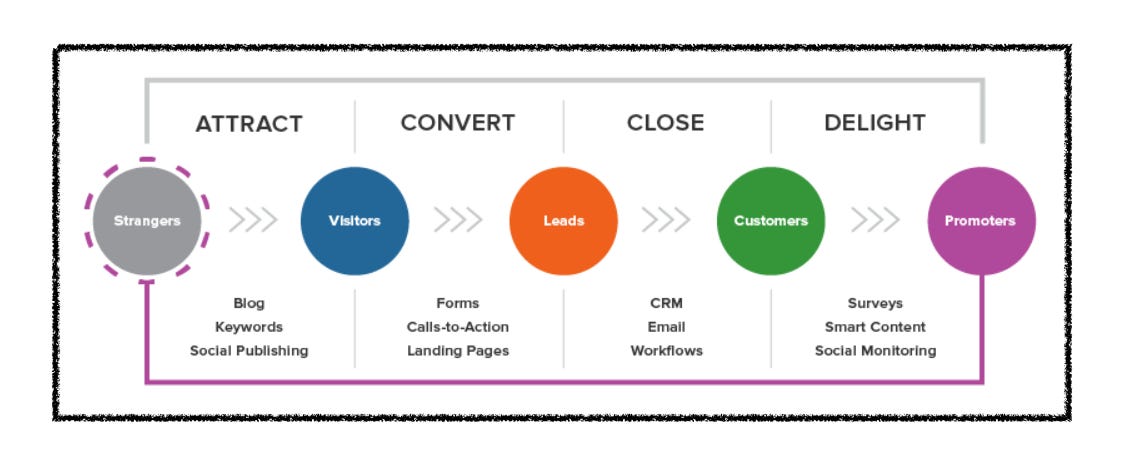
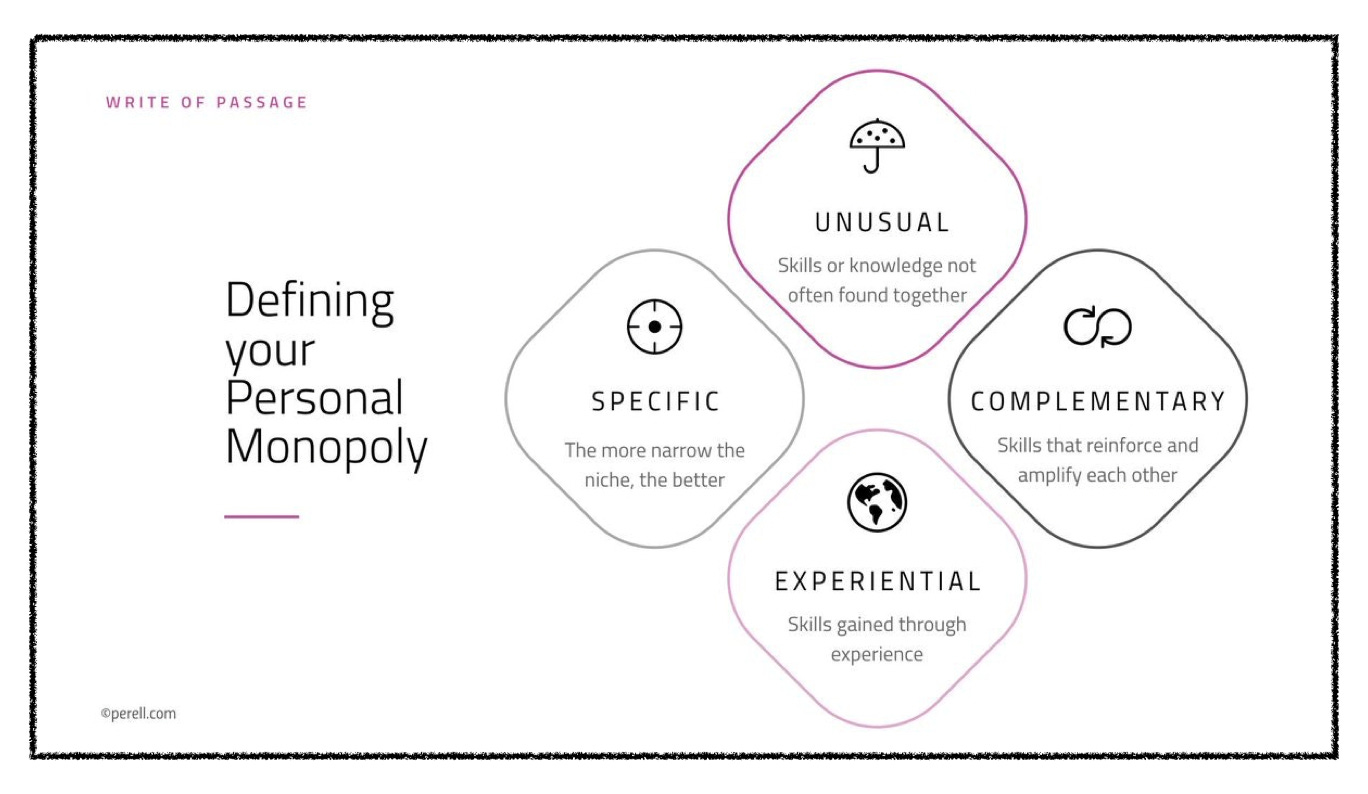
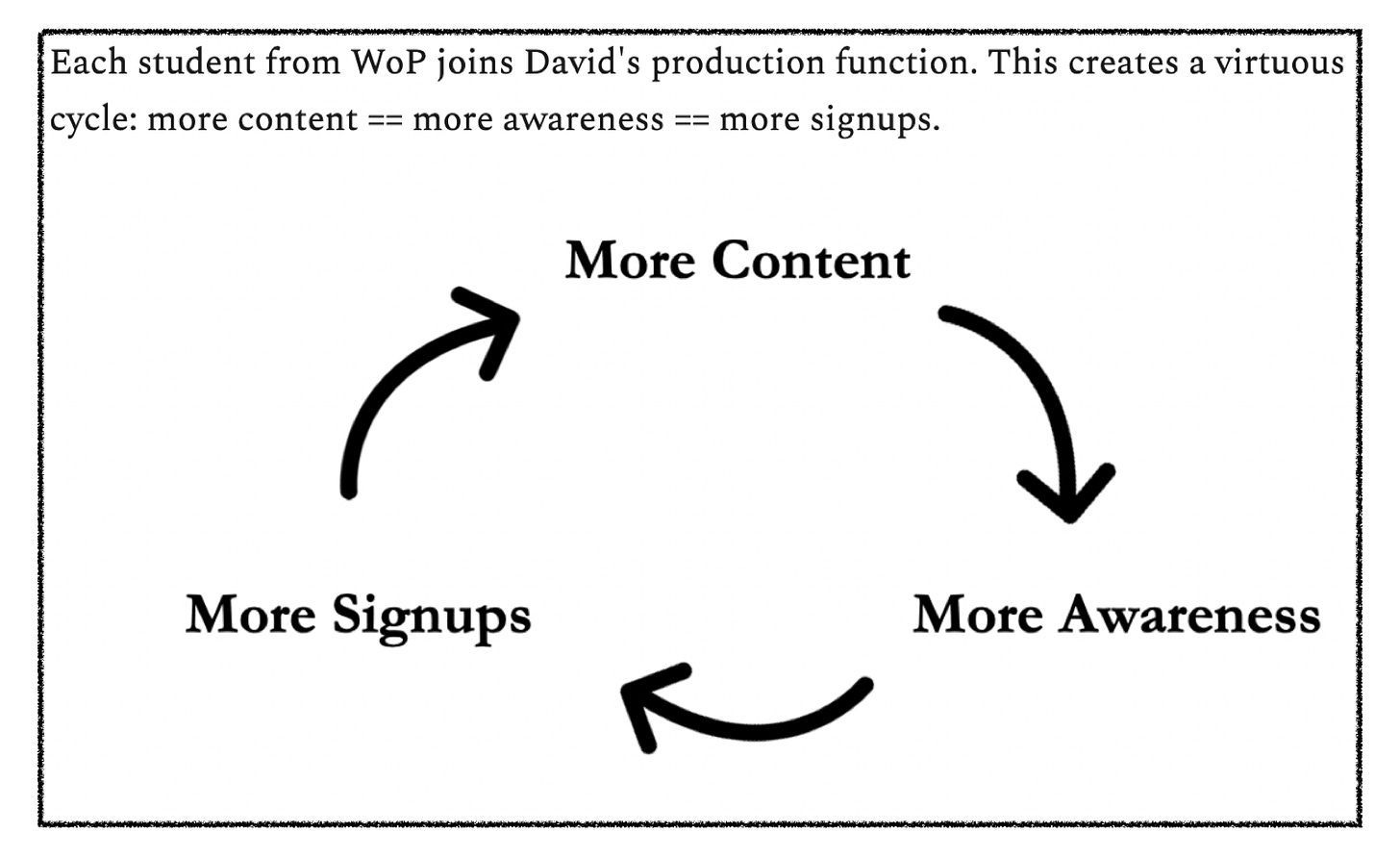
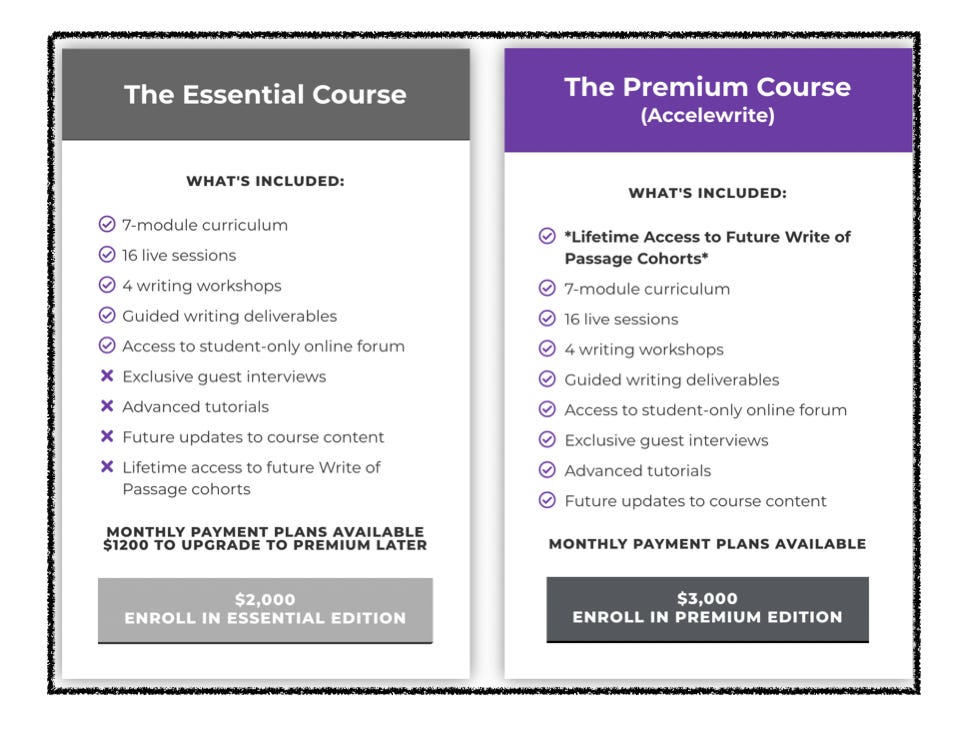
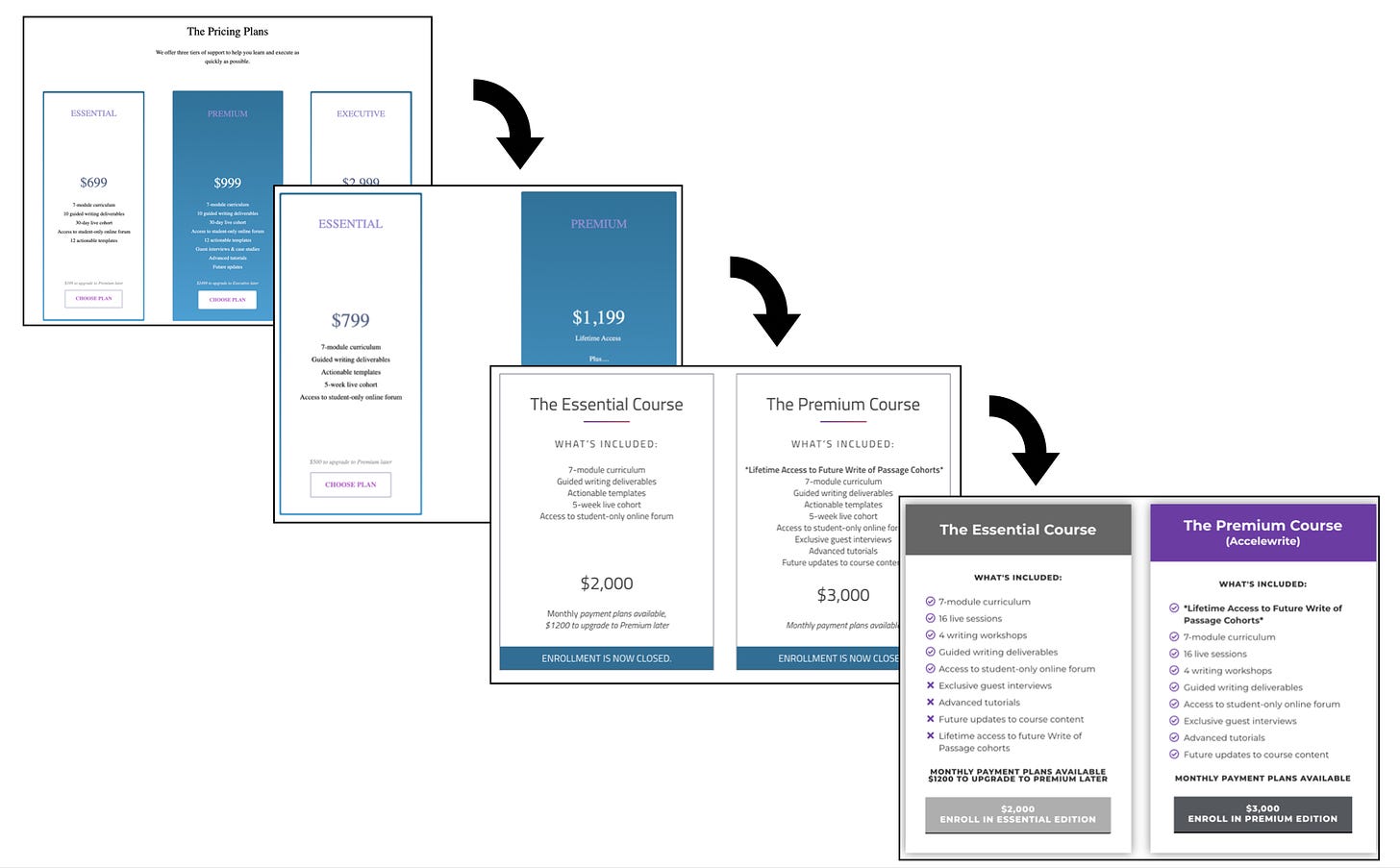
The concept of using packaging to signal what the “important features” are is really clever. And the physiology of telling the users what they should value because of packing is great! I have been using https://accountingcoach.com recently for fun, just use the free content, but the paid packaging reminded me of this also 👍 Excellent read I felt it really clicked for me at the end 🙏
In a help chat I had with an amazon agent of Audible Team I was told for those devices with bluetooth whispersync for voice [high end kindle, and a few middle grade kindle] the audio portion of a narration can be borrowed for a possessed title. https://EveryLegalVote.com